Nothing is more annoying than spotting some nasty lawn weeds in your perfectly thick, green grass.
You might even say it makes you a bit furious. It might even bring out some killer instincts you didn’t know you had.
After all, who doesn’t want to march right over and stomp out crabgrass when they see it? You know you want to.
You might go to rip them out of the ground and only pull out the tops and not the roots. So frustrating. That’s when you might decide to bust out the weed killer after you can’t take another second of them in your face.
But you might be wondering, “How does weed killer work?” and maybe even more importantly, “How long does lawn weed killer take to work?”
How Does Weed Killer Work?
As the enemies of healthy, thriving lawns, weeds don’t deserve your sympathy. And we don’t blame you; we don’t like them either.
Not only do weeds detract from the overall look of your lawn, but they can even grow enough to compete with your healthy turf, making it that much more challenging for your grass to grow healthy and thrive.
When you embark on a mission to banish weeds from your yard for good, you might wonder when to apply weed killer to a lawn and question, “How does weed killer work?”
Here, we’ll review the basics so you can get a better handle on weed control and lawn care in Northern Virginia.
1. Starting With the Basics: How Does Lawn Weed Killer Work?
There are two main types of weed killers: translocation and contact.
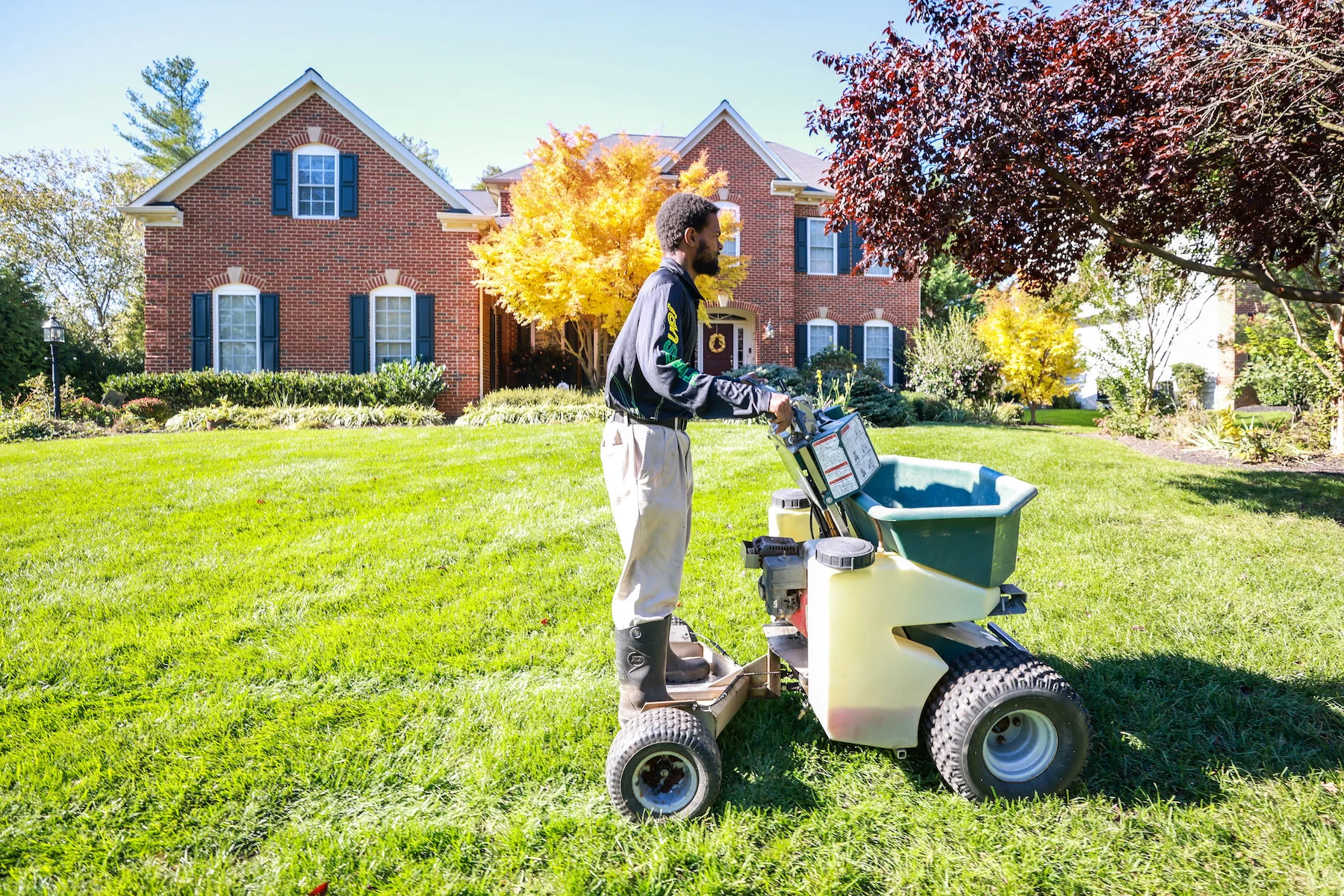
Translocation weed killers are those products that are applied to a plant, and then work their way from the surface to the roots to kill it.
Contact weed killers, on the other hand, work on “contact.” This means they kill the weed once they touch it.
2. Different Weed Control Products: Pre-Emergent vs. Post-Emergent
When it comes to when to apply weed killer to a lawn, you want to learn the different uses of pre-emergent and post-emergent herbicides.
Pre-emergent weed control is all about targeting weed seeds before they sprout, while post-emergent products are meant to kill weeds once they have already germinated or began annoying you with their presence.
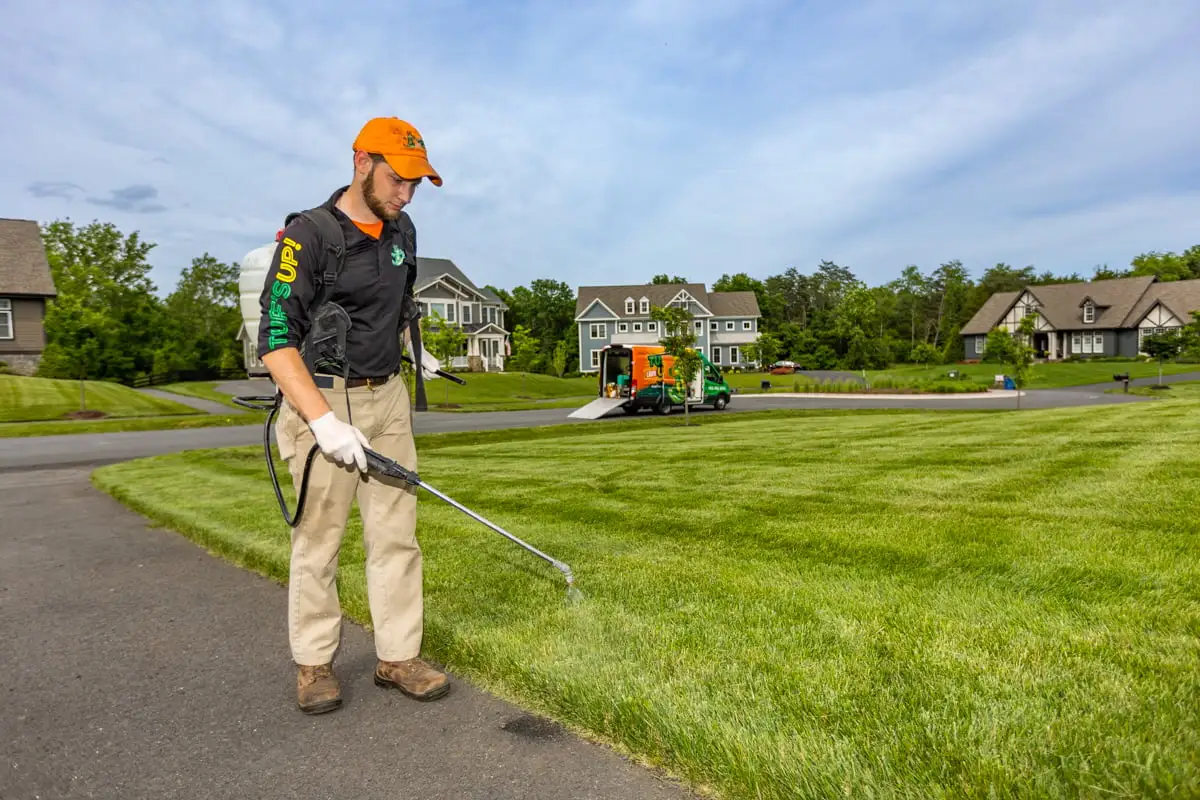
Knowing the difference between these two products is crucial because different weeds require different methods of control. If you don’t use the right one, you could not only be encouraging your weed problem, but you could also be wasting time and money.
Crabgrass, for instance, is a specific weed that tends to show up in Northern Virginia lawns. And it’s extremely tough to control. The best way to take it down is to tackle it pre-emergently. This happens in early spring to target the weed seeds before they germinate and take root in the soil. This weed killer will help prevent them becoming seed-producing plants.
Many lawn care companies will even do two pre-emergent crabgrass control treatments in early and late spring to double up on protection and ensure control of these aggressive weeds.
3. Then There’s Selective vs. Non-Selective Weed Control Products
When looking at how weed killer works, you also have to look at the various types of control.
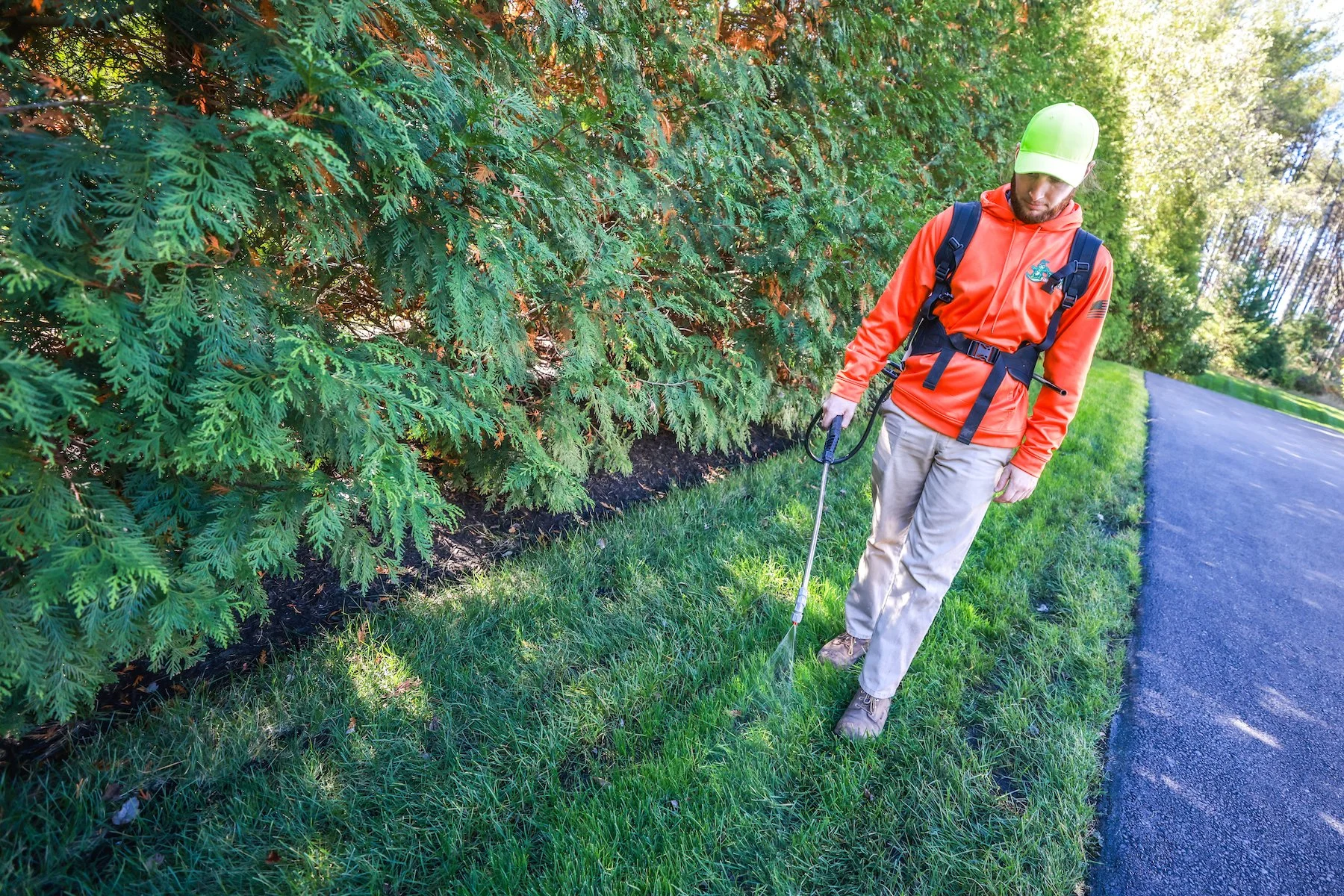
For instance, you might wonder, “How does lawn weed killer not kill grass?” Some weed killers are selective, meaning they target only certain weeds without damaging other nearby beneficial plants. That’s how they can kill your weed, but not your nearby grass.
Other weed killers are non-selective, meaning they will kill all the plants in that area.
4. Methods of Application: Liquid vs. Granular
Now that you know the different types of weed control products, there are also different methods of application.
How does weed killer work when it’s granular or liquid? Weed killers come in both forms.
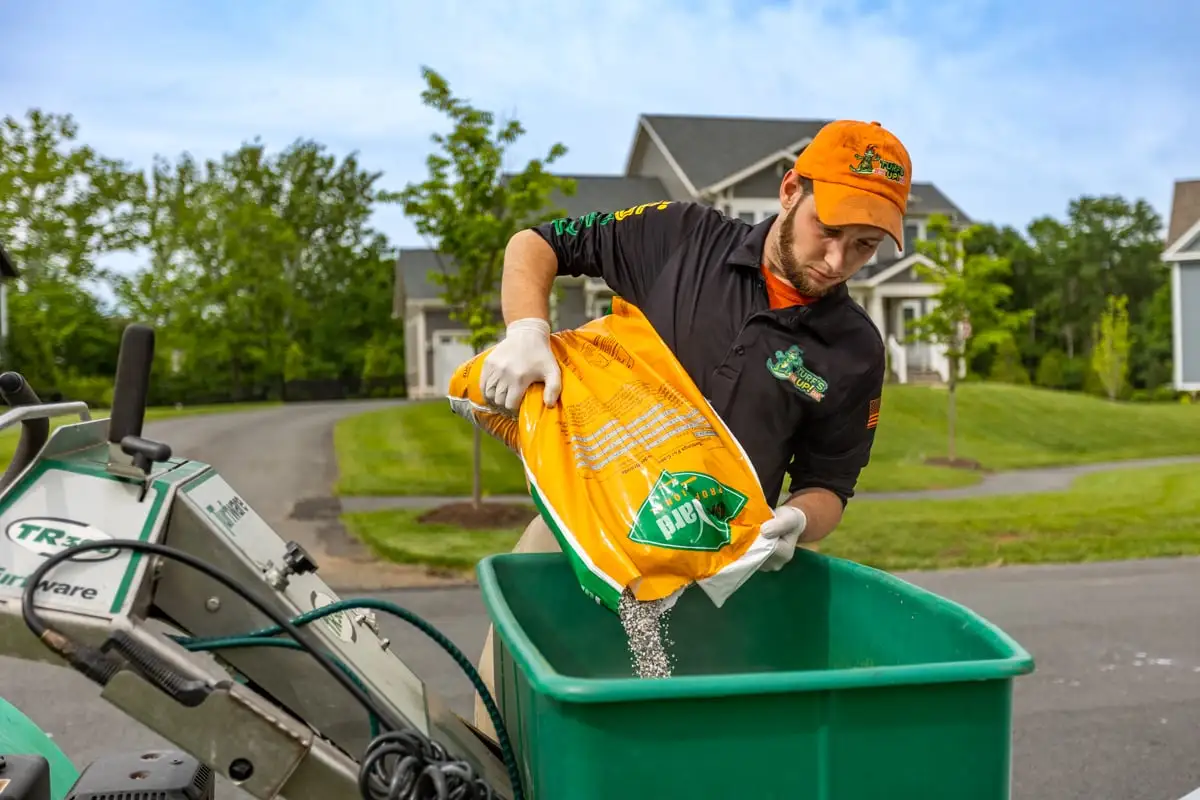
Typically, pre-emergent products are delivered in a granular form that need to be watered in, while post-emergent products come in a liquid form and must dry on the plant in order to work.
Your lawn care professional will use a mix of both types of products based on your specific weeds, the time of year, and what’s required to get the job done.
5. When to Apply Weed Killer to a Lawn
We wish we could tell you the answer to when you should apply lawn weed killer was a simple one, but it’s not.
Much of this depends on the type of weed you have. That’s why the first step in controlling lawn weeds is properly identifying them. While you may think all weeds are the same, the truth is that there are many different types – some of which are more common in Northern Virginia than others.
And different weeds require different treatments at different times. So, knowing which weed you’re dealing with means you can match the right means of control to the right weed at the right time.
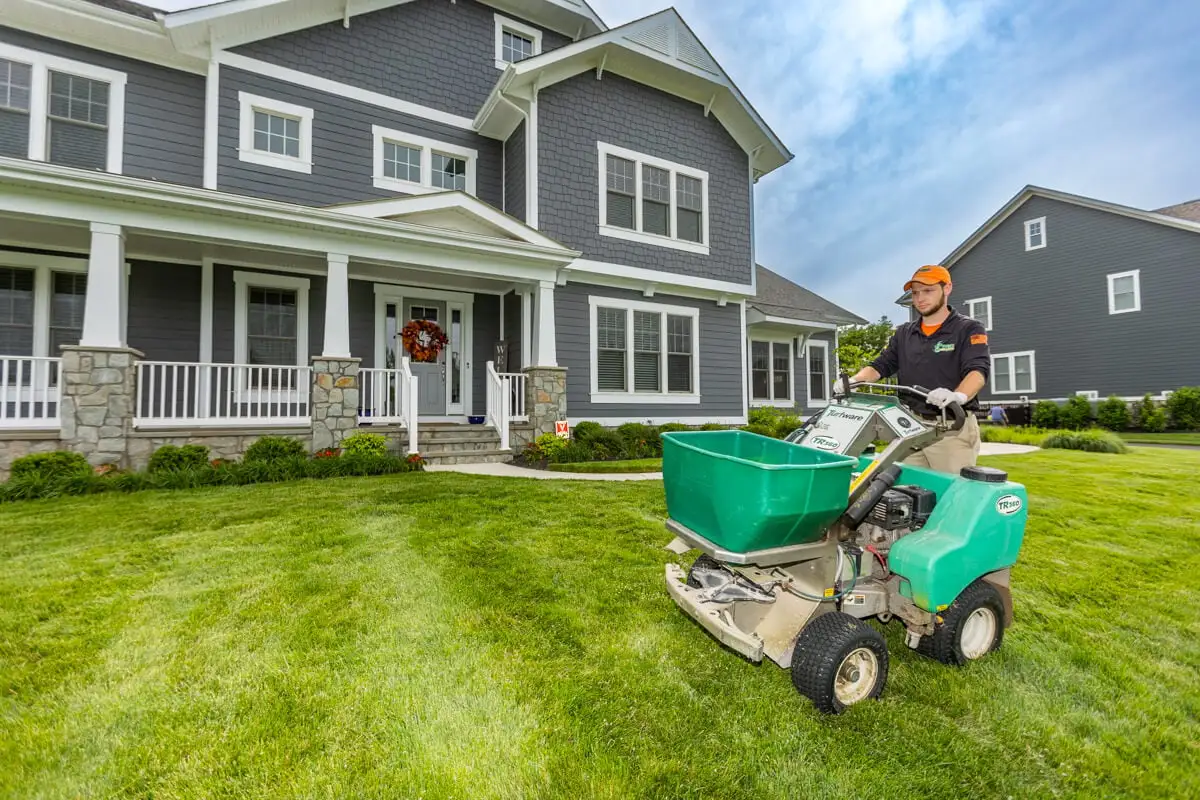
Some weeds are annual and some are perennial – meaning they either last one year and come back if they are reintroduced the next year or they have naturally come back year after year until eliminated. Different weeds also germinate at different times of the year. And some weed control strategies only work for one specific weed, while others can be applied to multiple weeds.
Also, each season will have its own weeds. And to confuse matters even more, some weeds you see in spring are actually fall or winter weeds that snuck into your lawn previously and are just continuing to grow.
So knowing when to apply weed killer to a lawn takes all this knowledge to ensure success.
6. How Long Does Lawn Weed Killer Take to Work?
Once your lawn care professional treats your lawn for weeds, they usually curl up and die 7 to 14 days after application.
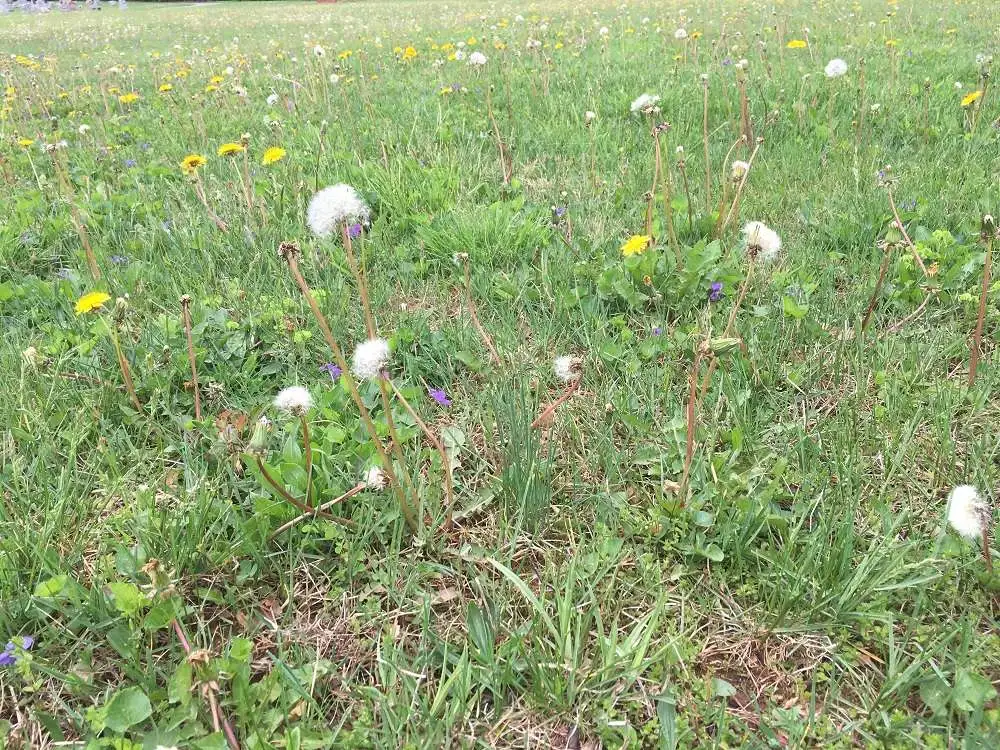
But weed killers normally work at different rates – some taking longer than others. And then some weeds won’t respond to specific types of control because that’s not the best way to tackle them, so you have to use different strategies or multiple strategies. Stubborn, fully grown weeds may take a month or more to die back.
7. Don’t Forget Cultural Practices in Lawn Weed Control
Weeds will use every available opportunity to take over your lawn.
And, many times, they like to infiltrate thin lawns that lack nutrition or are weak, stressed, and have compacted soils.
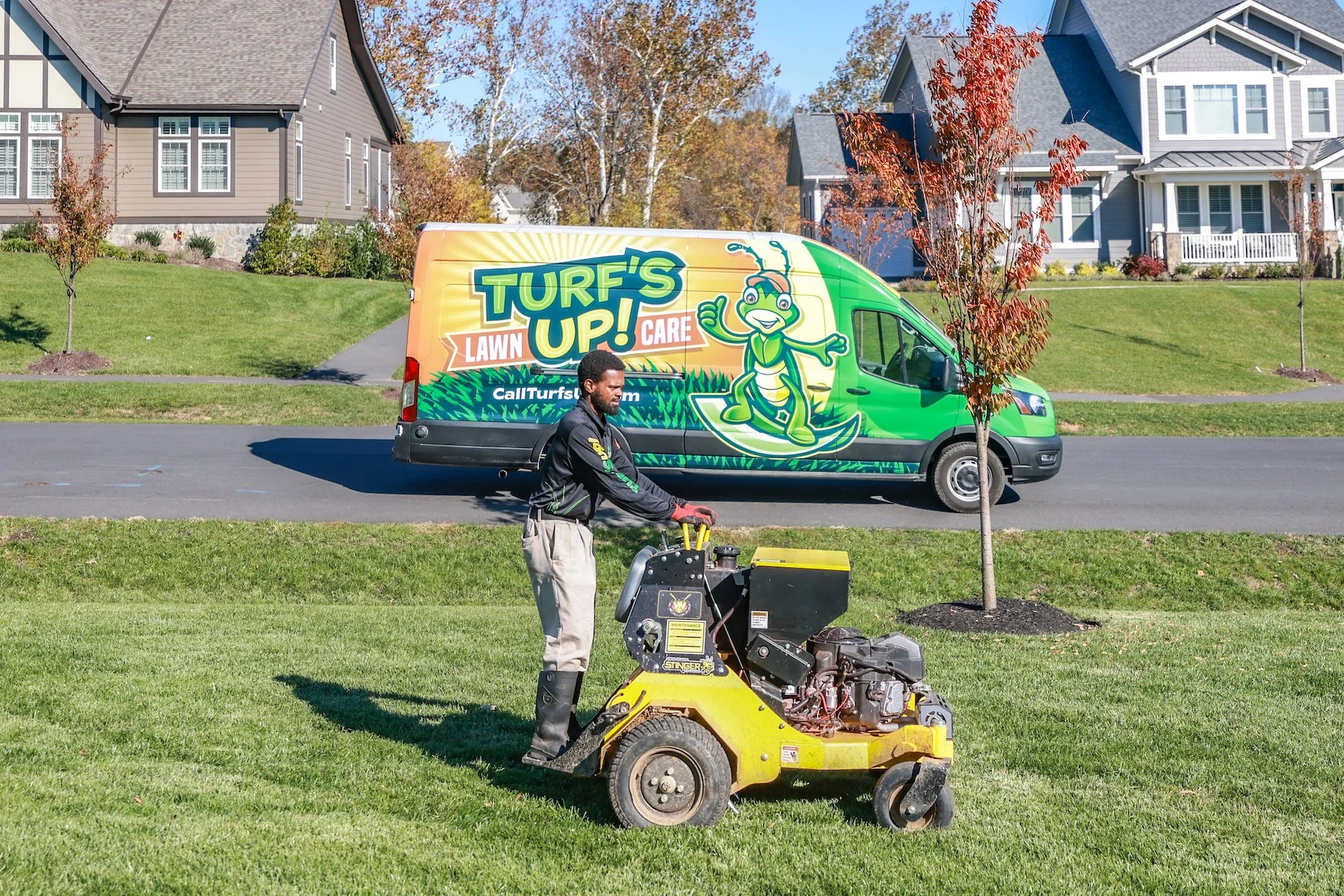
That’s why your best defense against these weeds is a thick, healthy lawn. That starts with proper care.
Start by mowing to a 3.5- to 4-inch height to keep your lawn from stressing out. Then, provide the proper nutrient balance through regular fertilization. Remember to deliver longer periods of infrequent irrigation. Annually, aerate, overseed, and topdress your lawn to limit compaction and fill in bare areas. This ensures a great environment in which your lawn can grow thick and healthy, giving weeds less of a chance to germinate.
Turf’s Up Can Assist You With Lawn Care in Northern Virginia
Weeds will attack Northern Virginia lawns when the weather and lawn conditions present the right growing conditions.
Once they are in, they keep growing … and it never seems like they’ll disappear.
You don’t want to give weeds any chance to slip in and take over your lawn. Trusting a professional for proper weed identification and precise weed control timing to ensure maximum, targeted control can help.. Lawn care professionals use specialty herbicides delivered with commercial-grade nozzles to reduce the particle size of the products and help them better stick to tough weeds.
If you notice a lot of weeds cropping up, give Turf’s Up a call. We can help you by providing a complete, proactive lawn care program that includes everything you need to keep your lawn strong – proper fertilization based on soil test results; pre-emergent and post-emergent weed control applications; lime applications to get your pH in the right range; and aeration, overseeding, and topdressing services to ensure your lawn can grow thick and strong.
Our professional eyes can spot weeds and take care of them quickly so you don’t have to worry about them.
Ready to learn why Turf’s Up could be your totally awesome choice for lawn care services near Leesburg, Ashburn, or Aldie, VA? We’re stoked to learn more about you and help you have the best lawn on the block. Get started today with a free quote. Together, we can prepare a customized plan that is perfect for you and your lawn.
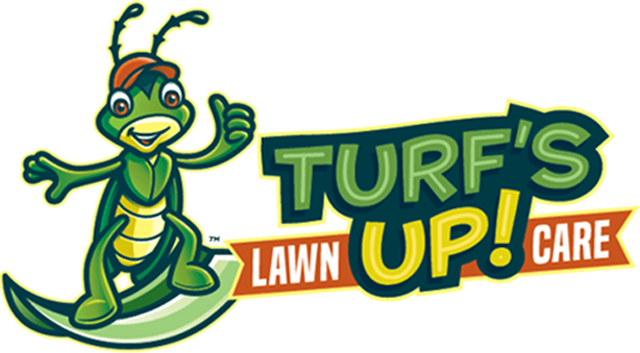
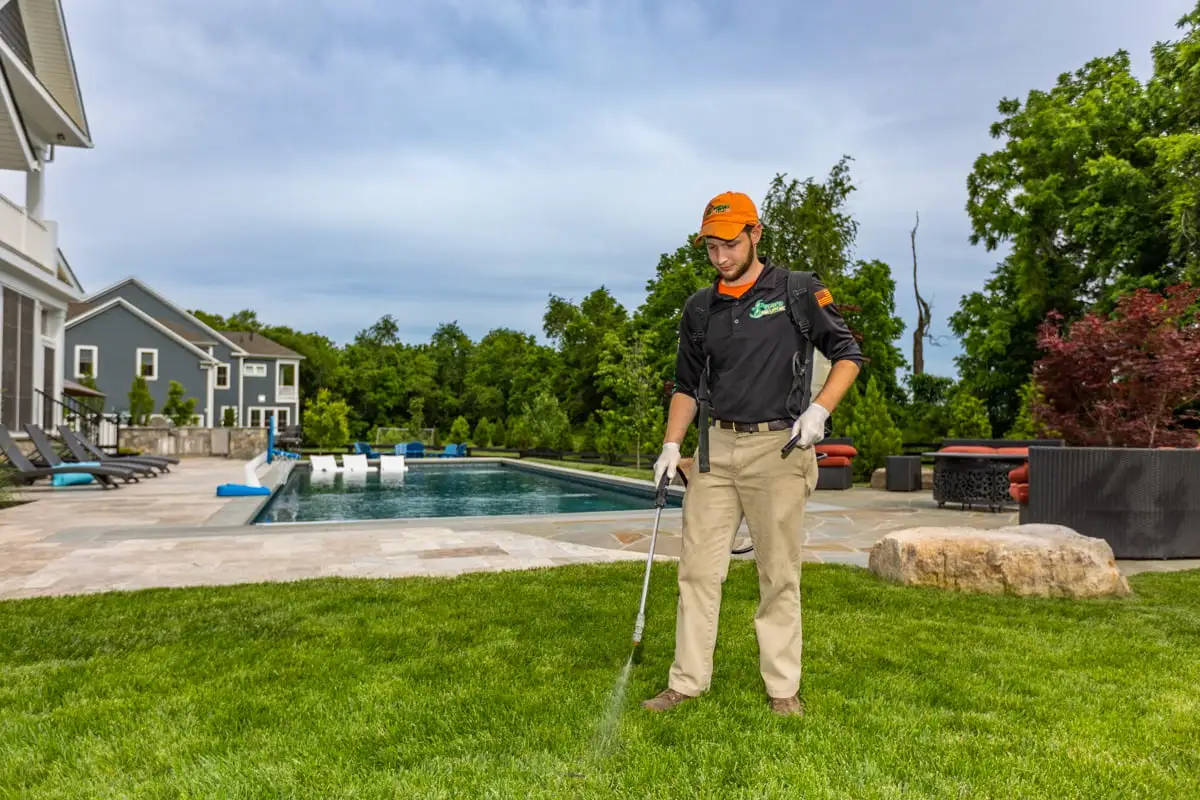




Comments (0)
Thanks for your comment!
Thanks for your feedback! Your comments have been successfully submitted! Please note, all comments require admin approval prior to display.
Error submitting comment!
There is a problem with your comment, please see below and try again.